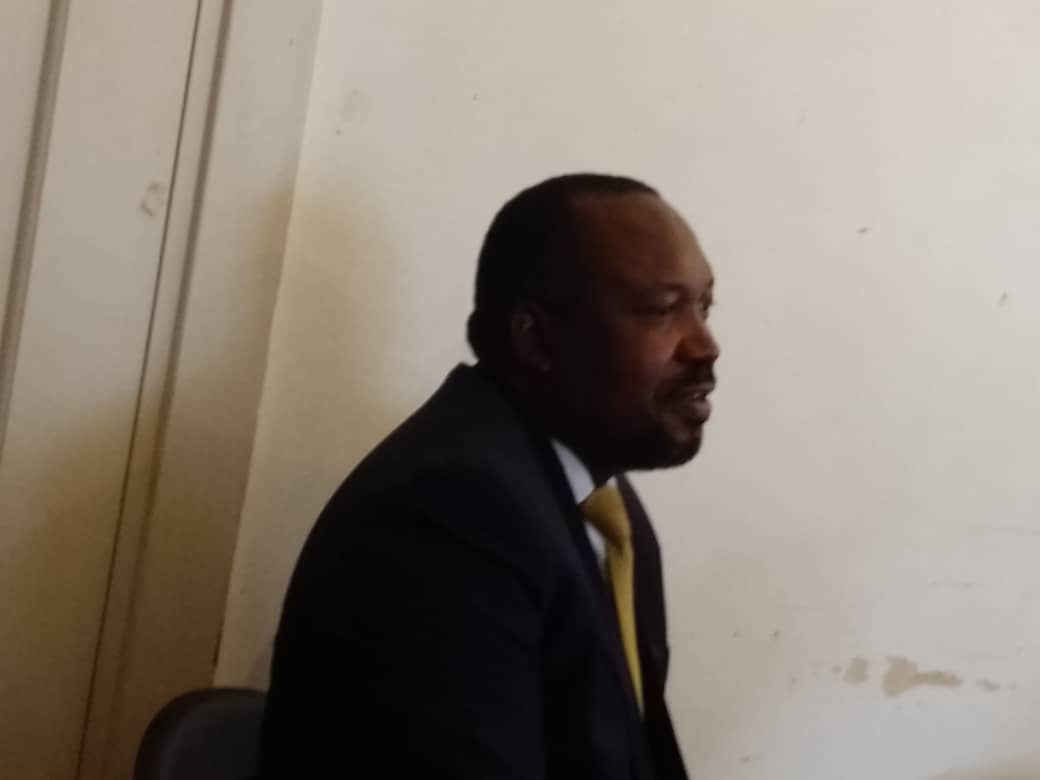|
Getting your Trinity Audio player ready…
|
The media plays an important role in ensuring transparency and accountability in the health sector if the country is to attain its vision of becoming an upper-middle-income economy by 2030, it has emerged.
This emerged during the inaugural COVID-19 Transparency and Accountability in Africa Project (a collaboration between BudgIT, Connected Development (CODE), Global Integrity, as well as partners in 7 African countries: Cameroon, Ghana, Kenya, Liberia, Malawi, Nigeria, and Sierra Leone) media meeting held in Harare yesterday.
Two phases of information and fact-finding will be established in pursuit of promoting accountability in the health sector. In the CTAP phase I, a combination of methodologies was utilised to generate data aimed at investigating how the COVID-19 relief funds were used by governments.
This information was leveraged to advocate and collaborate with governments to bring about change. The focus now is on the CTAP phase II, where the different partners will work with the government, communities, and other stakeholders to establish mechanisms for health sector accountability, foster effective and equitable Covid-19 vaccine distribution, and mount effective advocacies that mainstream health sector’s best practices in focal countries.
Addressing journalists in Harare yesterday, Daniel Molokele, the MP of Hwange Central said Parliament as a key arm of the government plays a watchdog role where it monitors the implementation of policies by the Executive.
“I am on the Health Portfolio Committee of Parliament. In the health sector, there are a lot of tenders for the procurement of medicines. Parliament is supposed to monitor the process. However, Zimbabwe isn’t an open government by design. I will allude to an incident whereby the Deputy Minister of Health allegedly bought medical equipment in India without going to tender and sadly it is reported that the equipment is about to expire.
“In such instances, the balance between the original and cut down price is often pocketed by politicians. I invite journalists to attend and cover oral evidence hearings that are open to the public where the Minister, Deputy Minister, and Permanent Secretary are asked questions and speak to the public through Parliament concerning issues in the health and other sectors of government so that you come up with informed articles concerning the health sector,” Hon Molokele said.
He invited journalists to take advantage of the Ministerial statements that come when a minister is asked to respond to a specific question and insisted that public hearings and petitions are other routes for holding the Executive to account even though it appears that to date, Parliament recommendations are often not implemented by the Executive.
“The media holds the government accountable. Media players in the private sector working independently can break down access to information monopoly by bringing out information swept under the carpet. The media can work with CSOs to do advocacy, and acquire technical support on issues like capacity building. CSOs can also train champion MPs and collaborate with journalists and capacitate them around issues like debt. However, the proposed Private Voluntary Organisations Amendment Bill seeks to whip CSOs into towing the government line. The media should keep the citizens knowledgeable and articulate so as to build a critical mass,” Molokele added.
Speaking on the same occasion, John Maketo, the Zimbabwe Coalition on Debt and Development (ZIMCODD) Programmes Manager alluded to the importance of transparency and accountability across sectors.
He said the media can play a key role in strengthening transparency and accountability in public resource management. He said ZIMCODD engaged in resource tracking following the outbreak of COVID-19 in March 2019.
The organisation assessed the needs of government requirements to respond to the pandemic and published its own financial projections. At that time, the government said it needed US$100 million but ZIMCODD felt that amount was inadequate.
“A lot of support came to support vulnerable countries like Zimbabwe. However, there were revelations that some politicians diverted COVID-19 donations toward political campaigning, electioneering, and self-enrichment. Jack Ma donated to Zimbabwe some COVID-19 testing kits and PPE. The ZIMCODD also recorded government mobilized resources. We monitored the distribution processes and spending patterns. ZIMCODD also documented donation pledges (honoured or not). We also converted donated resources in-kind to monetary value.
“Since some of the donations subsidized the government’s own budgets, we tracked the process on a weekly basis using our own tracker as an advocacy tool for raising awareness and improving resource transparency. Due to our advocacy work, the government announced donated COVID-19 material. President Mnangagwa at one time made a commitment to continue publishing for continued transparency. He also pledged to audit all COVID-19 funds,” Maketo said.
He said while the government often holds its work under wraps, it was forced to make the COVID-19 revelations as a result of public pressure for transparency and accountability from CSOs like ZIMCODD in collaboration with the media.
“The Covidgate scandals saw others converting donated material to their own and selling them to the government. When the media, CSOs, and individuals were alert, the US$60 million tender for COVID-19 equipment initially announced was cancelled and the then health minister was fired. The media personnel should continue to work hard to put corruption by public officials in the public domain. We are happy that the media amplified ZIMCODD findings to the extent that the international community and other foreign governments were aware of the corruption scandals and denounced them. While the government might have saved face, the public outcry was attended to. As ZIMCODD, we assure stakeholders that tracking is going to be continuous including procurement and distribution of vaccines to intended beneficiaries. At this point, we are concerned about reports that some vaccines are almost expiring in warehouses because of their low uptake,” Maketo said.
